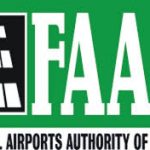Last week, I was privileged to be part of the members of Nigeria Guild of editors that visited Sokoto state for membership drive where the commissioner for information who is a veteran journalist, Hon. Dalladi Bakokogunan Sokoto grabbed the opportunity to take us round to see the giant strides of Gov. Wammako-led administration and meet face to face with the governor for any questions.
My last visit to Sokoto was during the past administration of Bafarwa when I used one stone to kill two birds. I had an audience with him as a publisher of Concern magazine and then as a consultant with Nigerian Governors Forum (research and documentations).
After the inspection of many projects, what impressed me most apart from the state university and Murtala Mohammed teaching hospital, is the Asare water project; linked 40 boreholes drilled at the Asare valley, to 3 water tanks located at the top of Arkilla hills, a distance of about 10 kilometres. Nigeria, the world’s eighth most populous country, has begun grappling with issue of water scarcity across a number of its states – forcing infrastructure and long-term sustainability questions. The importance of water as a social and economic resource was articulated in the African Vision for Water Resources management at the Second World Water Forum held in The Hague, Netherlands.
Successive governments in Nigeria have abdicated their responsibilities to the citizens by not investing enough resources to the provision of safe and good quality water (pipe borne water) to the population for domestic and industrial use. After waiting in vain for the government, many communities (both urban and rural) have embarked on self-help projects in building small-scale water infrastructures.
But because water infrastructures are capital intensive, many of the poor communities do not have the resources to construct durable infrastructure, thus making water availability to the localities unreliable. Sadly, thousands of Nigerians who depend on dirty and contaminated water for domestic use die every year from water borne diseases.
The water scarcity issue is considerably daunting, given the fact that Nigeria represents the eighth most populous nation in the world – with a total population of over 152 million people. And among the 152 million who reside in Nigeria, less than 30 percent – according to a 2002 Daily Trust report cited on the IRC International Water and Sanitation web site – have access to adequate drinking water.
In February 2008, water scarcity was reported in Sokoto metropolis, resulting in continuous search by residents in different parts without success where water hawkers sell a 25 liter jerry can for N15. Some residents said they had to resort to packaged water, popularly called ‘pure water’ for their drinking needs.
Also, students and civil servants had to abandon their studies and duty posts in search of potable water.
Apart from that, the State Water Board was managed by politicians instead of professional water engineers. According to a source: “In Sokoto, contractors are more superior and powerful in policy formulation and execution than the professional bureaucrats, and even the Executive Officers heading agencies who have been confined to ceremonial schedules of signing of the payment vouchers”.
But at its inception, the current administration met a water system capable of pumping only 9 million litres of water to the state capital and its environs per day. This prompted the government to embark on the Asare water project, which now provides 20 million gallons within Sokoto metropolis on a daily basis.
The Asare water project linked 40 boreholes drilled at the Asare valley, to 3 water tanks located at the top of Arkilla hills, a distance of about 10 kilometres. This water station is equipped with modern water pumping and treatment machines capable of pumping 20 million gallons per day.
Though the Asare water project is its latest, the Wamakko administration has been taking steps to arrest the perennial water shortage in the state. At its inception, the present administration constituted a committee that was charged with the task of making sure the state gets adequate water supply.
Rural water supply was also not neglected by Wamakko’s administration. The government through its department for rural water supply embarked on special projects to supply the rural areas with water. Some of these projects include 1000,motorized water schemes,600 solar powered motorized schemes, reactivation of over 250 hand pumps,200 overhead tanks and boreholes. Rural water schemes of Binga, Yaka, Yarabba, Tungarmalam and Rashidu among others were also rehabilitated. Over 200 additional boreholes were also drilled in the guinea worm infested communities of Binji, Gada, Rabah, Silame, Tangaza, Tureta and Tambuwal local government areas.
We urge all the federal, state and local governments to invest more in the abundant ground water resources for both the rural and urban areas of Nigeria like Governor Wammako.



